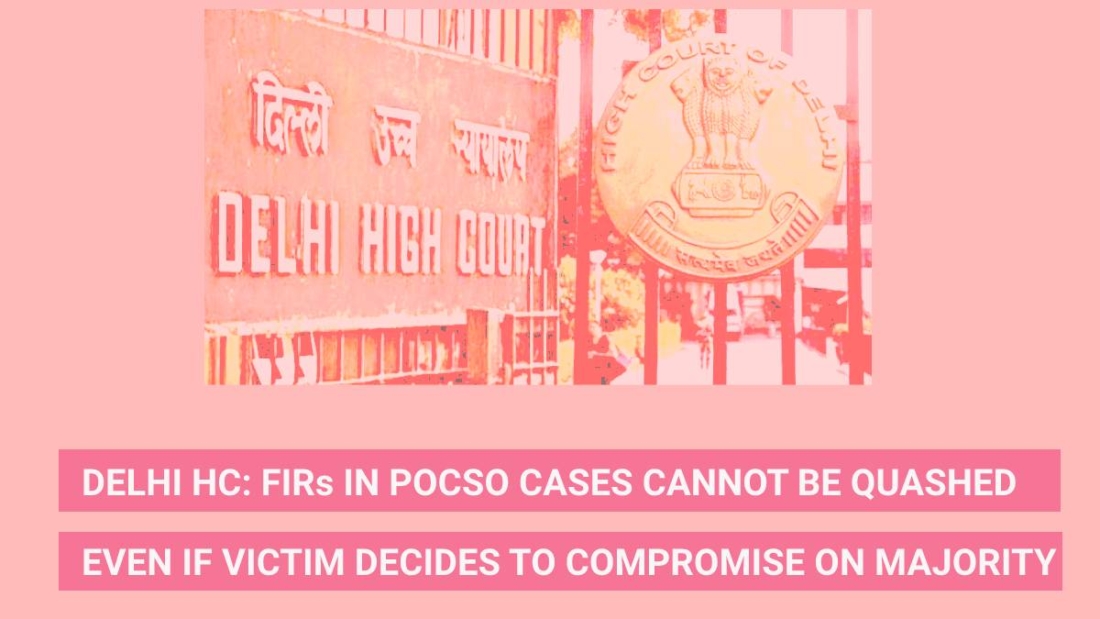The Delhi High Court in yet another judgment, Dinesh Sharma and Ors. vs. State on 24th March 2021 (earlier in Sunil Raikwar vs. State in January 2021) reiterated that “FIR cannot be quashed in POCSO cases, not even on the ground that victim decided to compromise; after attaining the majority.”
The FIR was registered in this case on 07.05.2018 for the abhorrent act against a minor girl for offence punishable under Sections 354, 354D, 506, 509, 34 of Indian Penal Code (“IPC”) and Section 10 of Protection of Children from Sexual Offenses Act, 2012 (“POCSO”).
The facts of the case being, Dinesh Sharma (“Appellant No. 1 / Petitioner”) is the distant relative of the victim girl. He called the victim in March, 2018 stating that he has nude pictures of her and if she did not befriend him, he will leak the pictures online. He went to the extend of threatening her stating that if she did not befriend him and his other 2 friends; he would kill her parents. The other 2 friends are also petitioners in this case.
The Petitioner filed this petition under Section 482 of Criminal Procedure Code (“CrPC”) for quashing of the FIR stating that a settlement has been reached between the victim (who has now turned major), the mother of the victim and the Petitioner.
The High Court relied on the Statements of Objects and Reasons of POCSO and opined that exercising jurisdiction under Section 482 of CrPC to quash an offence under POCSO would go against the intention of the legislature which has brought out the special enactment to protect the interests of children.
In coming to its decision, the Court also relied on various judgments of Supreme court, such as
Narinder Singh & Ors. vs. State of Punjab & Anr., in which it was observed that the guiding factor in such cases of quashing should be to secure either ends of justice or to prevent abuse of the process of any court. Such a power should not to be exercised in those prosecutions which involve heinous and serious offences of mental depravity or offences like murder, rape, dacoity, etc. because such offences are not private in nature and have a serious impact on society and State of M.P. vs. Laxmi Narayan & Ors., in which it was pointed out that the power granted under Section 482 of CrPC to quash criminal proceedings may be exercised if the matter is solely of a civil nature, such as those arising out of commercial transactions or matrimonial or family disputes, and when the parties have settled the entire conflict amicably.
It also referred to Gian Singh vs. State of Punjab, which states that under Section 482 of CrPC the High Court has the power to quash FIR where the parties have settled the matter between themselves, but the power has to be exercised fairly and with caution.
As a result, the appeal was rejected by the Hon’ble Court.
– Vaishali Jain, Paralegal – Child Safety at Work
 Cart is empty
Cart is empty 


Add a Comment